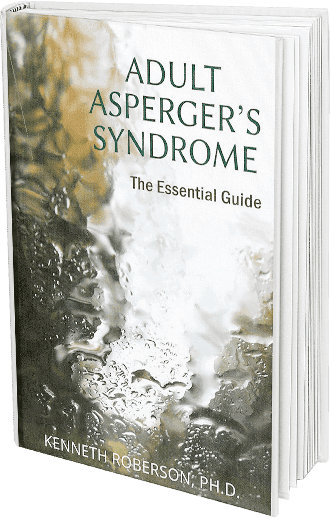
In spite of all we know about Autism Spectrum Disorder in adults, certain misconceptions and misunderstandings about this condition persist, both among laypeople and professionals. Here are eight facts about adult Autism Spectrum Disorder that you should know:
1. Autism Spectrum Disorder is not acquired. It is present at birth. It results from unusual brain development and not from childhood experiences or early exposure to certain circumstances. While the symptoms typically appear around the time children begin to interact with peers, when problems of socialization and communicating become more noticeable, the condition was there beforehand. People may behave in ways that mimic Autism Spectrum Disorder but not because they developed it sometime in their life. If they did, it is not Autism Spectrum Disorder.
2. Autism Spectrum Disorder is not a static condition. It can improve over time. Often, it recedes in adulthood after a period in childhood and adolescence when the demands of socialization highlight the core problems of Autism Spectrum Disorder. As they mature, many people acquire greater skills in managing their symptoms, and in doing so the signs of Autism Spectrum Disorder fade away.
3. People can change. Given that Autism Spectrum Disorder is not static and people often acquire better ways of managing it over time, the idea that adults with Autism Spectrum Disorder can’t change is a myth. This is not to say that people can will their condition to disappear. However, with a true desire to behave, think and feel differently, along with diligence and hard work, the manifest symptoms can recede into the background to the point where they are no longer visible.
4. Adults with Autism Spectrum Disorder do feel empathy. Research has established that strong feelings for others, including concerns for their well-being and sensitivity to their emotional state, is common in adult Autism Spectrum Disorder. The problem is not a lack of concern for people but instead difficulty comprehending their feelings and communicating that comprehension.
People with Autism Spectrum Disorder do feel compassion, sorrow or care. What is hard for them to do is to sense other people’s emotions and imagine what other people might be thinking and feeling.
5. Autism Spectrum Disorder is not social phobia. People with Autism Spectrum Disorder do desire social interactions even though they may live solitary, isolated lives. While they tend to focus on things that interest them personally and have difficulty communicating and socializing, they have the same range of social interests as normal people. Autism Spectrum Disorder is not a problem of disinterest in others. It is problem of identifying their social interest and acting on that interest appropriately.
6. No two people with Autism Spectrum Disorder look the same. It is said that if you’ve met one person with Autism Spectrum Disorder, you’ve met one person with Autism Spectrum Disorder. There is an infinite number of combinations to describe adults with Autism Spectrum Disorder, as is true in describing people who are depressed or anxious or have ADHD, along with any number of other conditions. The common thread of poor socialization and fixed, repetitive interests is the hallmark of Autism Spectrum Disorder but the way these difficulties are expressed is as varied as the number of people with Autism Spectrum Disorder.
7. Higher intelligence is associated with Autism Spectrum Disorder. What separates Autism Spectrum Disorder from other forms of Autism Spectrum Disorder is that individuals often demonstrate normal or above-normal levels of intelligence, and they typically perform well academically. They may have difficulty using what they know in meaningful ways but this is a function of their unusual preoccupations and communication difficulties, not intelligence.
8. There is no medication for Autism Spectrum Disorder. To date, no medication has been developed that modifies the core features of Autism Spectrum Disorder. Instead, medications are used in treating secondary consequences of this condition, such as depression, anxiety, irritability, and sleep disturbances. Treating these symptoms with medication can actually have a profound and positive effect on the behavior of someone with Autism Spectrum Disorder, and in some case appear to “cure” it.
You can read about the goals of therapy for adults with Autism Spectrum Disorder here.




